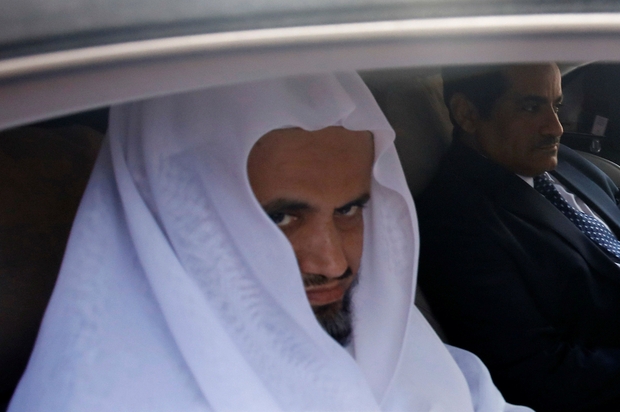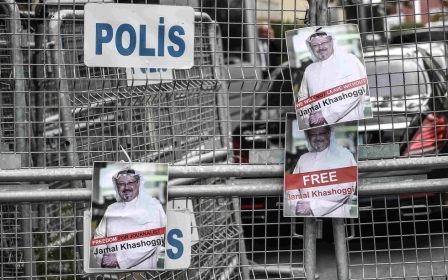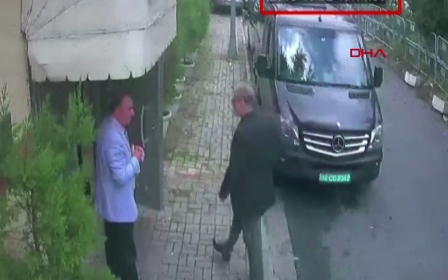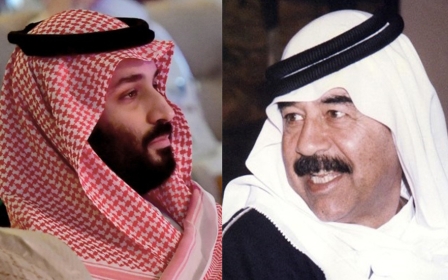Saudi trial of Khashoggi murder suspects opens in Riyadh
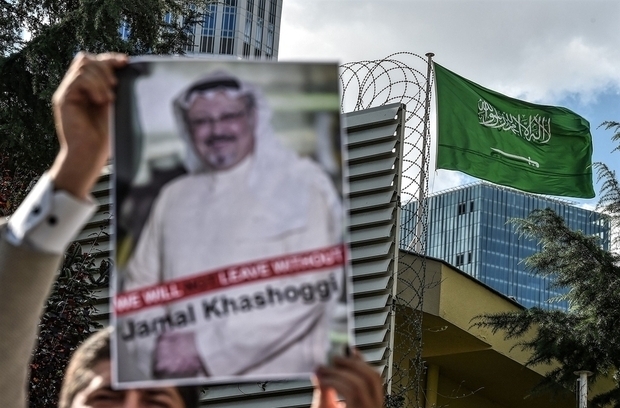
The trial of 11 Saudis suspected of involvement in Jamal Khashoggi’s murder has opened, the kingdom’s public prosecutor said on Thursday, adding that the death penalty has been recommended for five of them.
In a statement carried by the official Saudi Press Agency, the prosecutor said the 11 suspects faced their first hearing in Riyadh’s criminal court, attended by their defence attorneys. None of the suspects have been named.
“The public prosecutor demanded imposing proper punishments against the defendants and is seeking capital punishment for five of the defendants for their direct involvement in the murder,” the statement said.
In November, the Saudi prosecutor announced that 11 Saudis had been charged over the murder, with 10 others under suspicion and in custody.
“The Public Prosecutor continues to investigate the case with the rest of the individuals in custody in relation to this crime,” Thursday’s statement said.
The hearing follows an opaque Saudi investigation into the assassination of Khashoggi, a Saudi journalist and Middle East Eye contributor who was brutally murdered and dismembered inside his country’s consulate in Istanbul in October.
The murder, which the CIA and US Senate have concluded was carried out under the direct orders of Saudi Crown Prince Mohammed bin Salman, has had catastrophic consequences for the kingdom’s international reputation.
Clashing investigations
Since Khashoggi was reported missing on 2 October, the Saudi authorities have changed their official version of events several times, originally claiming he left the consulate unharmed.
However, Turkey has drip fed gruesome details of the murder to media outlets including MEE. Many of these details were gleaned from an audio recording from within the consulate.
In the face of new details being regularly leaked, Riyadh was forced to change its position several times, yet has always insisted that its crown prince was unaware of the operation and its botched cover-up.
In the wake of the scandal, Saudi King Salman and Turkish President Recep Tayyip Erdogan agreed to coordinate their countries’ investigations.
But Turkish sources told MEE at the time that the Saudi officials were very uncooperative and only sought to find out what Turkey knew, failing to offer any evidence themselves.
According to Thursday’s statement, the kingdom had sent two letters to Turkey requesting it releases evidence pertaining to the case, with no reply.
Turkish officials told MEE this week that Saudi authorities have themselves continued to provide inadequate information on the case and were obstructing Turkey’s investigation.
A Turkish source, speaking on condition of anonymity, told MEE on Wednesday that Ankara was now focusing on gaining support for an international investigation under the auspices of the United Nations secretary-general, Antonio Guterres.
We don’t know the names of 15 suspects against whom they filed charges. We don’t know where they are held, if they are arrested. They are not transparent at all
- Turkish source
Riyadh's failure to name any of the suspects or people charged with the murder has caused much irritation in Turkey, which is concerned that those responsible will literally get away with murder.
“We don’t know the names of 15 suspects against whom they filed charges. We don’t know where they are held, if they are arrested. They are not transparent at all,” the Turkish source told MEE.
According to a new book on the case, Salah Muhammad al-Tubaigy, the autopsy expert who cut Khashoggi’s body into pieces mere minutes after his death, has been freely residing in a luxurious home with a swimming pool in the Saudi port city of Jeddah.
A source is also quoted in the book saying that Maher Abdulaziz Mutrib, one of Mohammed bin Salman's bodyguards and the leader of the death squad sent to kill Khashoggi, wasn't even under arrest.
Middle East Eye propose une couverture et une analyse indépendantes et incomparables du Moyen-Orient, de l’Afrique du Nord et d’autres régions du monde. Pour en savoir plus sur la reprise de ce contenu et les frais qui s’appliquent, veuillez remplir ce formulaire [en anglais]. Pour en savoir plus sur MEE, cliquez ici [en anglais].


